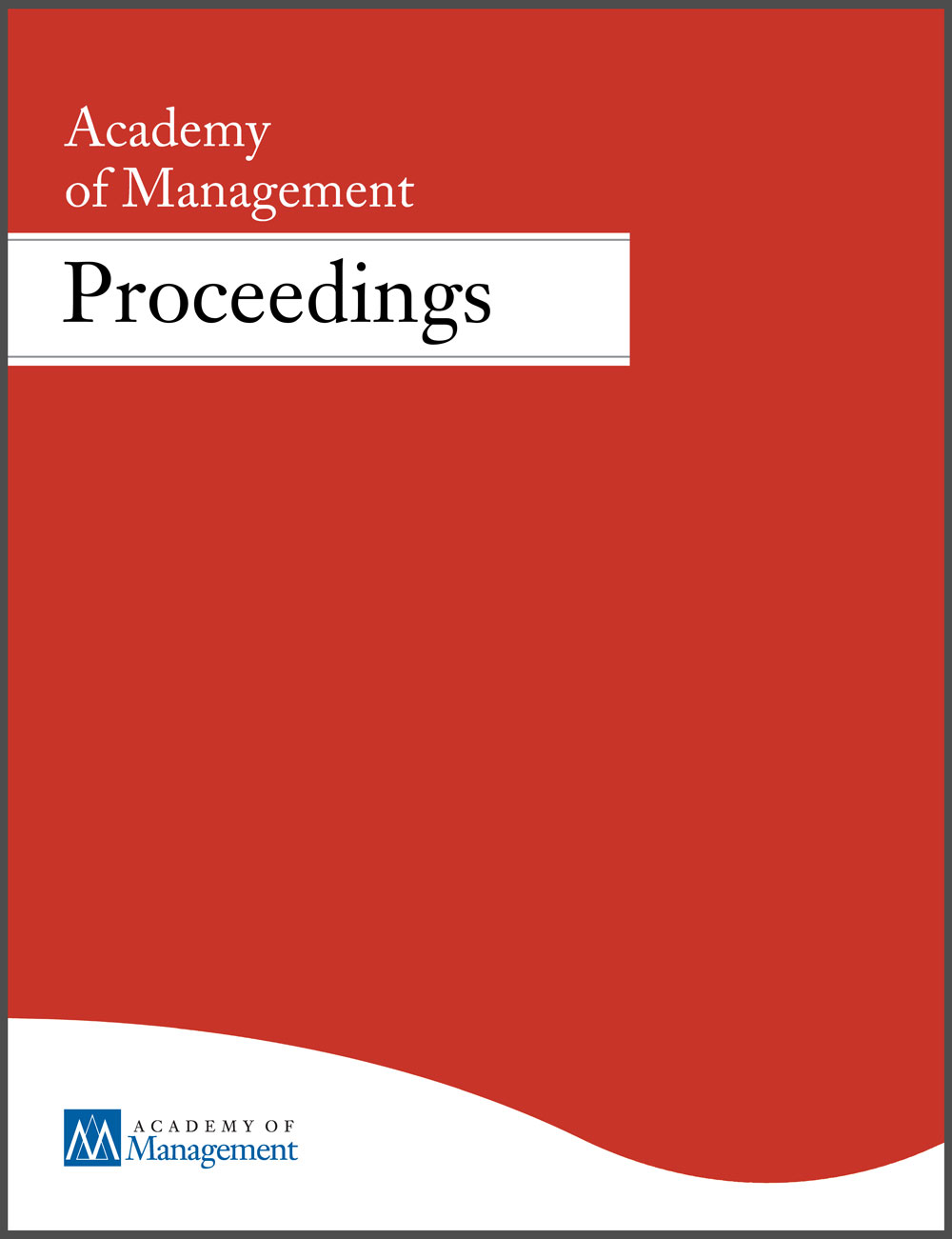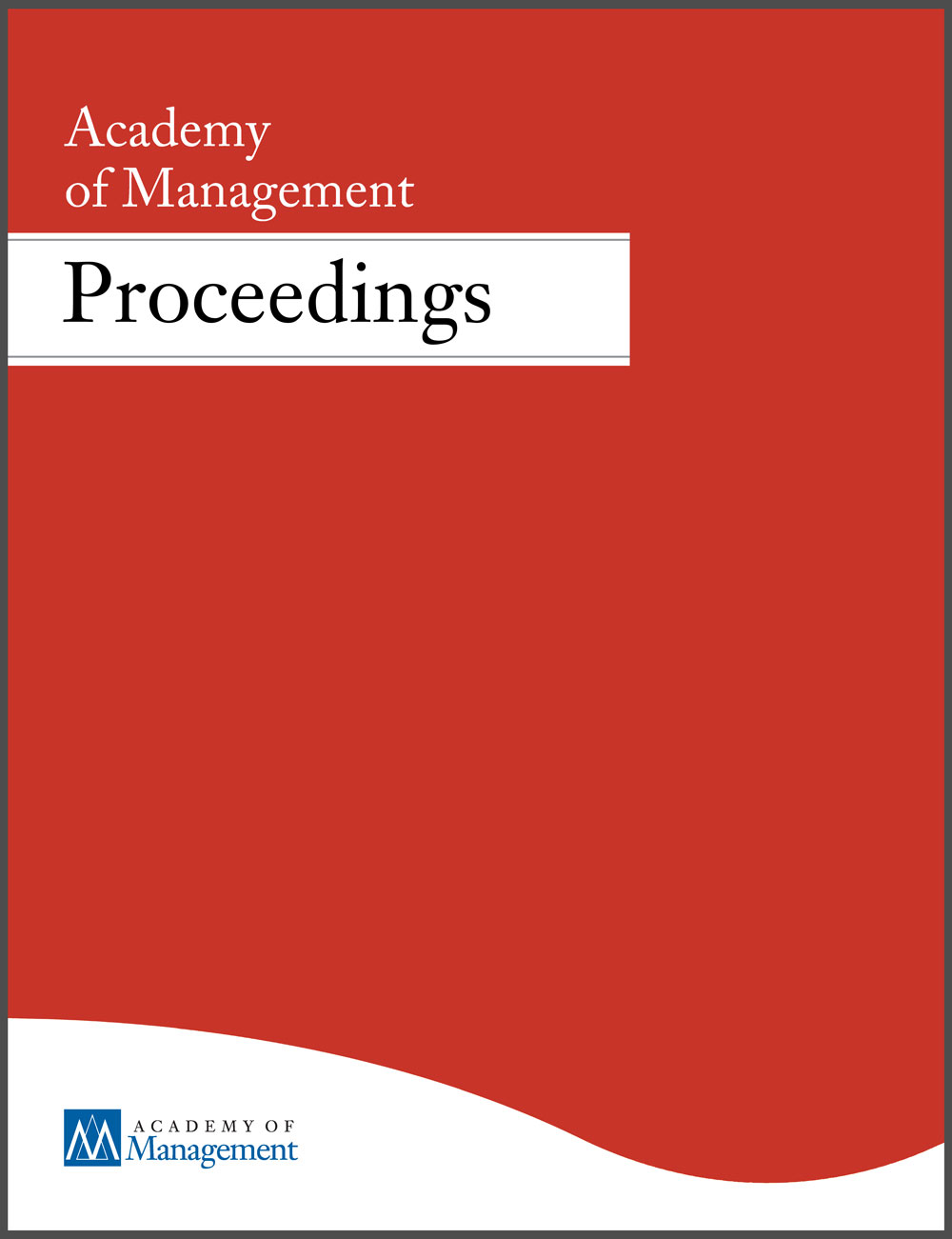Academic articles
Practitioner articles
Working papers
Books
Book chapters
Case studies
Other publications
Subject(s)
Strategy and general management; Technology, R&D management
Social network research has made considerable progress in understanding how certain network structures emerge and the extent to which they affect outcomes such as innovation or organizational performance. In recent years, however, scholars have agreed that we also need to have a better understanding of the relational content that flows through network ties. In this symposium, we attempt to push network research forward by incorporating network content into our current understanding, especially how the content of network ties is narrated by social actors. This symposium aims to encourage fruitful discussion among organizational scholars on the extent to which studying the narrative of network tie content extends our knowledge of the impact of network structures.
With permission of the Academy of Management
Volume
2022
ISSN (Online)
2151-6561
ISSN (Print)
0065-0668
Subject(s)
Human resources management/organizational behavior; Strategy and general management; Technology, R&D management
Keyword(s)
interfirm mobility, brokerage, brokers, patents, innovative performance
Extant literature on social capital has demonstrated the positive effects of brokerage on employee productivity, particularly in knowledge-intensive and creative environments. Yet, little is known about the interactions between employee brokerage and employee mobility to competitors, another common theme in the strategic human capital literature. We posit that employees in brokerage positions face unique information and exposure and have different external opportunities than their peers in more constrained network positions. However, as brokerage is an inherently local network position, we further argue that the effect of mobility on employee productivity is substantially different for those in brokerage positions versus those in constrained networks. Moreover, the nature of these consequences is contingent on the breadth of expertise of employees. Using a large, longitudinal sample of inventors working for the world’s major pharmaceutical firms, we find partial support for the interactive effects of brokerage, mobility, and productivity. The findings of this study contribute to the social capital literature on employee brokerage and to strategic human capital research on inventor mobility.
With permission of the Academy of Management
Volume
2022
ISSN (Online)
2151-6561
ISSN (Print)
0065-0668
Subject(s)
Management sciences, decision sciences and quantitative methods; Strategy and general management
Keyword(s)
deep learning, nlp, transformers, leadership, semantic networks, distributed representations
JEL Code(s)
C45, D7, D85
This dissertation proposes methods that bridge network science, machine-learning, and agent-based simulations to infer information about context-dependent relationships. The methods are applied to analyze and understand the roles and actions associated with organizational leadership. Findings indicate, among other things, that effective leadership, both as found in practice and in theory, may be more authoritative and hierarchical than is commonly asserted.
Journal Pages
156
Subject(s)
Economics, politics and business environment; Strategy and general management
Keyword(s)
corporate structures, industrial companies, globalization, supply chain, headquarters, global trade
ISSN (Print)
0015-6914
Subject(s)
Technology, R&D management
Keyword(s)
Open innovation in Science, openness, collaboration in science, Open Science, interdisciplinary research
Openness and collaboration in scientific research are attracting increasing attention from scholars and practitioners alike. However, a common understanding of these phenomena is hindered by disciplinary boundaries and disconnected research streams. We link dispersed knowledge on Open Innovation, Open Science, and related concepts such as Responsible Research and Innovation by proposing a unifying Open Innovation in Science (OIS) Research Framework. This framework captures the antecedents, contingencies, and consequences of open and collaborative practices along the entire process of generating and disseminating scientific insights and translating them into innovation. Moreover, it elucidates individual-, team-, organisation-, field-, and society‐level factors shaping OIS practices. To conceptualise the framework, we employed a collaborative approach involving 47 scholars from multiple disciplines, highlighting both tensions and commonalities between existing approaches. The OIS Research Framework thus serves as a basis for future research, informs policy discussions, and provides guidance to scientists and practitioners.
Volume
29
Journal Pages
136–185
Subject(s)
Strategy and general management; Technology, R&D management
Keyword(s)
Open innovation in science, scientific research, openness in science, collaboration in science, inter- and transdisciplinary research
This introduction discusses Open Innovation in Science (OIS) as an emerging stream of research and summarizes the articles published in the Special Issue on this topic.
Volume
29
Journal Pages
131–135
Subject(s)
Human resources management/organizational behavior
Keyword(s)
Negotiation, impasse, getting to no
All day, every day, most of us are bombarded by requests at work. Sometimes these can pile up leaving us feeling overwhelmed. Learning the right way to turn some down can help us stay in our jobs, as happier and more productive employees.
Subject(s)
Human resources management/organizational behavior; Management sciences, decision sciences and quantitative methods; Strategy and general management
Keyword(s)
Social network, social norms, economic sociology, network formation and analysis: theory, behavioral, non-rational, treatment effect models
This thesis consists of three studies analyzing interactions among agents in different types of network. Chapter 1 focuses on the formation and consequences of social influence networks in organizations. Using agent-based simulations and formal game theoretical analysis, we develop a dynamic model of social influence and goal-updating to examine how employees form social influence networks, set norms, and commit to effort-levels in response to social comparisons processes prompted by the manager. By incorporating different contextual moderators, this chapter enriches the behavioral theory of the firm, showing when fueling comparisons (and the resulting conformity) is favorable or hostile to organizational performance.
In Chapter 2, I focus on firms' collaboration networks and revisit the “empirical content” of structural hole theory: how the benefits of a network position rich in structural holes for organizational performance vary under extreme, crisis conditions. Using longitudinal network data on investment banks—and exploiting the shocks of the dot.com market crash in 2000, as well as the housing crisis of 2008—we show that only monopolistic structural holes are advantageous for performance in crisis conditions. We provide further empirical tests of the mechanisms underlying this result and find that during the storm of crises, the key strategy for organizations which suffer from the crisis, is to compete for survival opportunities—new business partnerships and opportunities—and thus, they need exclusive, uncontested access to structural holes.
Finally, Chapter 3 looks at networks in competition and tests how status similarity results in conflicts among agents. Using data from the experiment by Charness et al. (2014), I empirically show that conflicts may arise among agents due to the ambiguity of who dominates the others, and highlight the moderation effect of gender norms in the relationship between status ambiguity and conflict.
In Chapter 2, I focus on firms' collaboration networks and revisit the “empirical content” of structural hole theory: how the benefits of a network position rich in structural holes for organizational performance vary under extreme, crisis conditions. Using longitudinal network data on investment banks—and exploiting the shocks of the dot.com market crash in 2000, as well as the housing crisis of 2008—we show that only monopolistic structural holes are advantageous for performance in crisis conditions. We provide further empirical tests of the mechanisms underlying this result and find that during the storm of crises, the key strategy for organizations which suffer from the crisis, is to compete for survival opportunities—new business partnerships and opportunities—and thus, they need exclusive, uncontested access to structural holes.
Finally, Chapter 3 looks at networks in competition and tests how status similarity results in conflicts among agents. Using data from the experiment by Charness et al. (2014), I empirically show that conflicts may arise among agents due to the ambiguity of who dominates the others, and highlight the moderation effect of gender norms in the relationship between status ambiguity and conflict.
Pages
150
Subject(s)
Product and operations management
The structure of the efficiency-driven industry model contributed to supply chain failures under the pandemic. Industry leaders must now pursue alternative strategies to create resilience, despite the risks.
ISSN (Print)
0015-6914
Subject(s)
Technology, R&D management
Keyword(s)
R&D incentives, tax incentives, innovation, technology
This article provides a structured overview on the most important features of the new German legislation awarding tax breaks for R&D active companies.
Volume
2021
ISSN (Print)
1868-2979


